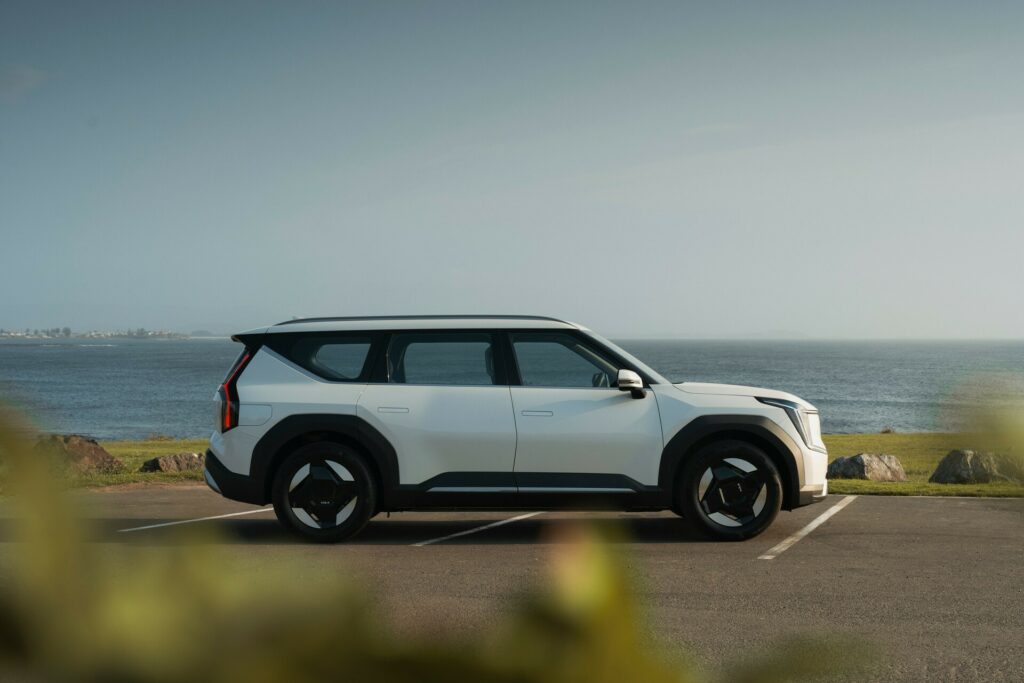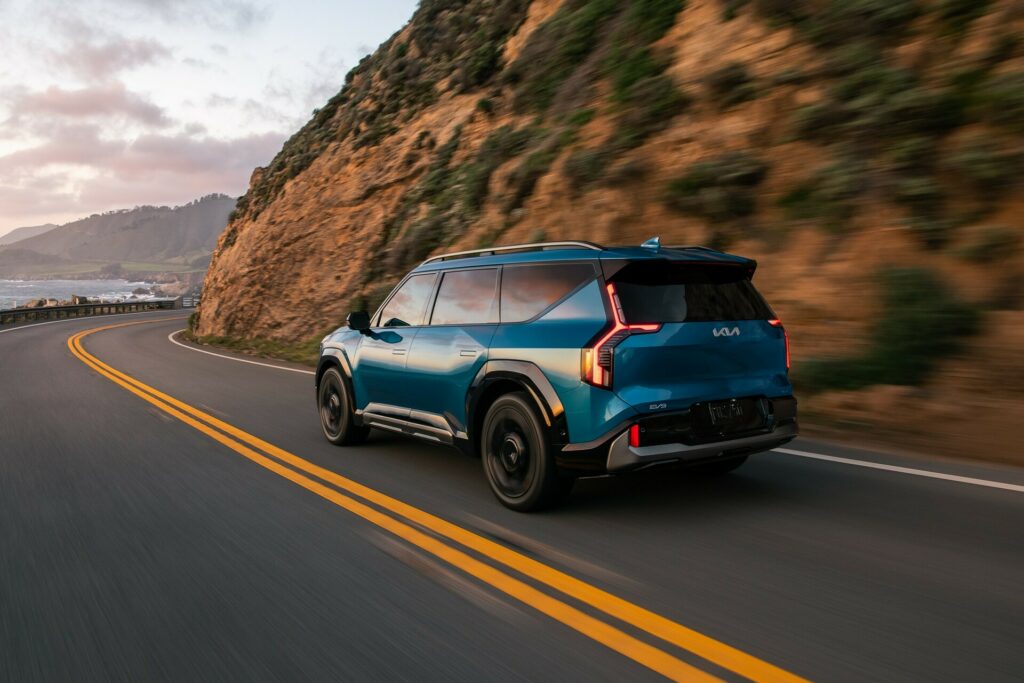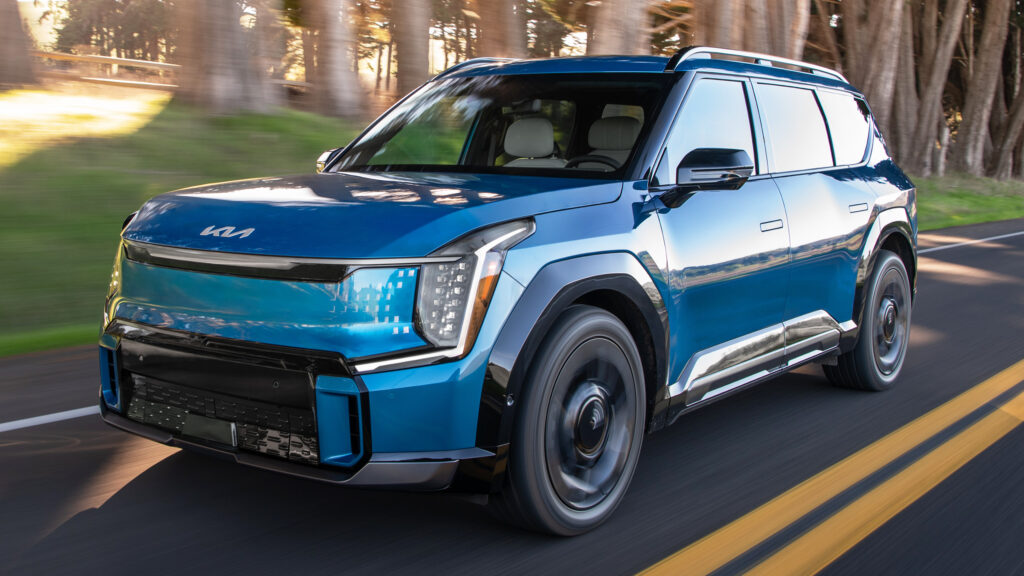Kia’s factory in the U.S. state of Georgia will start building the electric EV9 this spring and while it will be eligible for at least part of the federal EV tax credit, it may not be eligible for the full $7,500.
EV9 models currently being sold in the U.S. are imported from Korea and in January, the brand sold 1,408 examples, aiming to sell about 2,000 units each month. By Kia bringing production to the U.S., buyers should be able to get a $3,750 tax credit. However, requirements in force since January 1 mean the batteries of EVs must not source more than 2% of their components from a ‘foreign entity of concern’ like China, Russia, North Korea, or Iran.
Read: Kia EV9 Markups Are Out Of Control, Push EV To Nearly $85k
While speaking with Auto News, Kia Georgia chief executive Stuart Countess acknowledged that locally-built EV9 models will initially use battery components sourced through Hyundai Mobis and an existing Hyundai Motor Group facility, or external supplier. The Georgia plant will then go through a transition period before it starts using batteries that are locally sourced and assembled.

Supporting the EV9, as well as other EVs from the Hyundai, Kia, and Genesis brands will be the two large battery factories the conglomerate is currently assembling on U.S. soil. One will be a joint-venture site with LG Energy Solution while the other will be constructed alongside battery supplier SK On. Both will be located in Georgia and should come online next year.
While those looking to purchase an EV9 outright will have to wait a little longer to get the $7,500 tax credit, buyers can still benefit from the full credit if they choose to lease their new EV.
Kia’s Georgia factory has the capacity to build 350,000 vehicles a year and currently manufactures the Telluride, Sorento, and Sportage. The EV9 will be produced on the same line as these ICE models but its powertrain will be installed at a different workstation.




